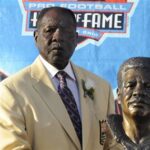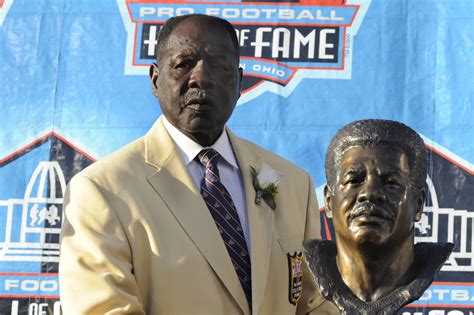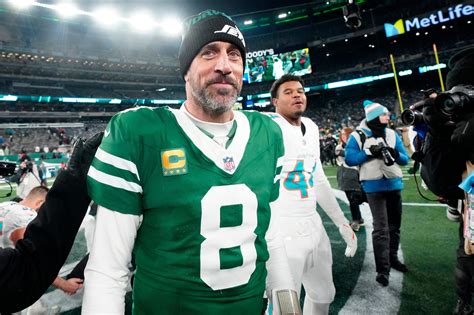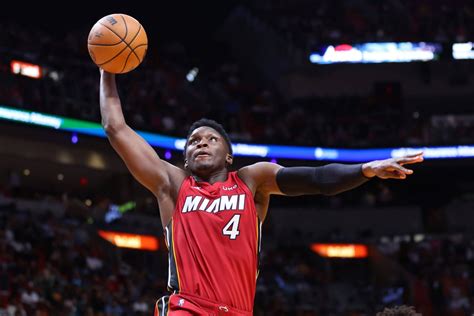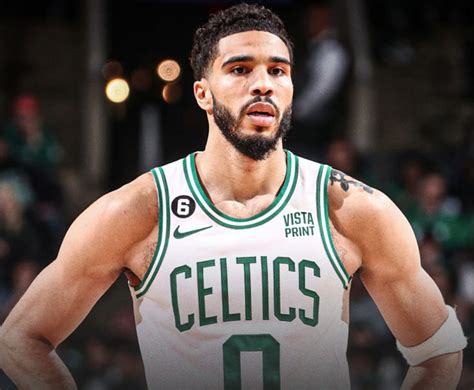
Larry Bird, reportedly frustrated with Robert Parish’s performance and attitude, allegedly told then-Celtics General Manager Jan Volk to trade Parish, according to former Celtics assistant coach Ed Badger. The revelation comes from Jackie MacMullan’s new book, “When the Game Was Ours,” offering a glimpse into the tense dynamics within the legendary 1980s Celtics dynasty.
The anecdote, as recounted by Badger, paints a picture of Bird’s intense competitiveness and unwavering commitment to winning. Badger recalled Bird saying, “Trade Parish’s a–. Robert doesn’t give a s—.” This blunt assessment highlights the high expectations Bird held for his teammates and his willingness to challenge even established veterans like Parish to maintain the team’s championship caliber. The reported ultimatum sheds new light on the internal pressures faced by the Celtics during their reign atop the NBA.
According to MacMullan’s book, the incident occurred during a period when Parish’s performance was perceived to be declining, and Bird felt he wasn’t fully engaged. This perception fueled Bird’s frustration, ultimately leading to the demand to Volk. Despite the harsh words, Parish remained with the Celtics and continued to play a vital role in their success, suggesting Volk either dismissed Bird’s demand or found a way to address the issue internally.
The relationship between Bird and Parish was always complex. While they were teammates and achieved great success together, their personalities and approaches to the game differed significantly. Bird was known for his relentless work ethic, fiery competitiveness, and vocal leadership, while Parish was more reserved and stoic, often letting his play speak for itself. This difference in temperament occasionally led to friction, as evidenced by Bird’s alleged demand.
The revelation of Bird’s comment provides valuable insight into the inner workings of the Celtics dynasty and the pressure cooker environment that existed within the team. It underscores the high standards set by Bird and the challenges faced by players in meeting those expectations. It also highlights the role of the General Manager in navigating complex relationships and making difficult decisions to maintain team harmony and competitiveness.
The incident, though decades old, continues to resonate with fans and analysts, sparking debate about Bird’s leadership style, Parish’s contributions, and the dynamics of championship-caliber teams. It serves as a reminder of the intense pressure and scrutiny faced by players and coaches at the highest levels of professional sports.
Further Details and Context
The Celtics of the 1980s were a team defined by talent, rivalry, and a relentless pursuit of championships. Led by Bird, Kevin McHale, and Parish, the “Big Three” formed the core of a team that dominated the NBA for much of the decade. Their battles with the Los Angeles Lakers, led by Magic Johnson and Kareem Abdul-Jabbar, captivated audiences and defined an era of basketball.
However, beneath the surface of their success lay a complex web of personalities, egos, and internal pressures. Bird, the unquestioned leader of the team, set a high bar for himself and his teammates. He demanded excellence and was not afraid to challenge those who fell short of his expectations. This intense competitiveness, while often credited with driving the team to greatness, also created tension and conflict.
Parish, a future Hall of Famer, was a key component of the Celtics’ success. Known for his longevity, consistency, and rebounding prowess, he provided a steady presence in the frontcourt. However, his quiet demeanor and understated approach sometimes clashed with Bird’s more demonstrative leadership style.
The dynamic between Bird and Parish was further complicated by the presence of other strong personalities on the team, including McHale, Danny Ainge, and Dennis Johnson. Each player brought their own unique skills and perspectives, contributing to the team’s overall success but also creating potential for conflict.
The role of the General Manager, Jan Volk, was crucial in navigating these complex dynamics and maintaining team harmony. Volk was responsible for making personnel decisions, managing player contracts, and ensuring that the team remained competitive. He had to balance the needs of individual players with the overall goals of the team.
Bird’s alleged demand to trade Parish placed Volk in a difficult position. On one hand, he had to respect Bird’s leadership and his desire to maintain the team’s championship caliber. On the other hand, he had to consider Parish’s value to the team and the potential consequences of trading a future Hall of Famer.
Ultimately, Volk chose to keep Parish, a decision that proved to be beneficial for the Celtics. Parish continued to play a key role in the team’s success, helping them win another championship in 1986. The incident highlights the challenges faced by General Managers in balancing the demands of star players with the overall needs of the team.
The revelation of Bird’s comment also raises questions about the nature of leadership and the different approaches that leaders can take. Bird’s leadership style was characterized by his intensity, competitiveness, and willingness to challenge others. While this approach could be effective in motivating players and driving them to excel, it could also create tension and conflict.
Other leaders may take a more collaborative or supportive approach, focusing on building consensus and fostering a positive team environment. The most effective leadership style often depends on the specific context and the personalities of the individuals involved.
The story serves as a reminder that even the most successful teams are not immune to internal conflict and that the pursuit of championships can often come at a cost. The Celtics dynasty of the 1980s was a product of exceptional talent, hard work, and dedication, but it was also a product of the complex relationships and internal pressures that existed within the team.
The impact of this kind of tension on team performance is significant. While competition can drive excellence, excessive conflict can disrupt team chemistry, communication, and overall morale. In high-stakes environments like professional sports, maintaining a balance between pushing for high standards and fostering a supportive atmosphere is crucial for sustained success.
The anecdote from MacMullan’s book underscores the critical role of team management in addressing and mitigating internal conflicts. A skilled general manager can mediate disputes, facilitate communication, and ensure that individual ambitions align with team goals. This proactive approach can prevent tensions from escalating and undermining team performance.
Moreover, the story highlights the importance of understanding the psychological dynamics within a team. Each player brings a unique set of motivations, insecurities, and expectations. Effective leaders recognize these individual differences and tailor their approach accordingly, creating an environment where players feel valued and motivated to contribute their best.
The Lasting Impact
The revelation of Bird’s alleged demand to trade Parish provides a valuable glimpse into the inner workings of one of the greatest teams in NBA history. It underscores the challenges of managing strong personalities, maintaining team harmony, and pursuing championships in a high-pressure environment. The story continues to resonate with fans and analysts, sparking debate about the nature of leadership, the dynamics of team chemistry, and the sacrifices required to achieve greatness.
The legacy of the 1980s Celtics extends far beyond their on-court accomplishments. They set a standard for excellence, rivalry, and passion that continues to inspire generations of basketball players and fans. Their story serves as a reminder that success is not just about talent, but also about the ability to overcome challenges, navigate complex relationships, and maintain a relentless pursuit of excellence.
The incident between Bird and Parish, while seemingly minor in the grand scheme of the Celtics’ dynasty, provides a valuable lens through which to examine the inner workings of a championship-caliber team. It serves as a reminder that even the most successful teams are not immune to internal conflict and that the pursuit of greatness can often come at a cost. The ability to manage these challenges and maintain team harmony is essential for sustained success.
Robert Parish’s Perspective and Career
Robert Parish, nicknamed “The Chief” for his stoic demeanor, had a remarkable career that spanned 21 seasons in the NBA. Drafted eighth overall by the Golden State Warriors in 1976, Parish was traded to the Boston Celtics in 1980, where he joined Bird and McHale to form the legendary “Big Three.”
Parish was known for his durability, consistency, and rebounding prowess. He played in more games than any other NBA player (1,611) and was a nine-time All-Star. He won four NBA championships, three with the Celtics (1981, 1984, 1986) and one with the Chicago Bulls (1997).
Despite his quiet demeanor, Parish was a vital component of the Celtics’ success. He provided a steady presence in the frontcourt, anchoring the defense and grabbing key rebounds. His ability to complement Bird and McHale was essential to the team’s dominance.
While Bird’s alleged demand to trade Parish may have been a reflection of his frustration at the time, it does not diminish Parish’s contributions to the Celtics or his overall legacy as one of the greatest centers in NBA history. Parish’s longevity, consistency, and championship pedigree make him a deserving Hall of Famer.
Larry Bird’s Leadership Style
Larry Bird was known for his fiercely competitive nature and unwavering dedication to winning. His leadership style was characterized by his high standards, his willingness to challenge his teammates, and his confidence in his own abilities.
Bird’s leadership was not always easy to accept. He could be demanding and critical, pushing his teammates to perform at their best. However, his intentions were always clear: to win championships.
Bird’s leadership style was effective in motivating his teammates and driving them to excel. He set an example through his own hard work and dedication, and he held his teammates accountable for their performance. His leadership was a key factor in the Celtics’ success in the 1980s.
The anecdote about Bird’s alleged demand to trade Parish provides insight into the complexities of his leadership style. While his comments may have been harsh, they reflected his unwavering commitment to winning and his belief that every player needed to contribute their best.
The Role of the General Manager: Jan Volk’s Dilemma
Jan Volk served as the General Manager of the Boston Celtics during a pivotal era in the franchise’s history. His tenure coincided with the rise of the “Big Three” and the Celtics’ dominance in the 1980s. Volk was responsible for making crucial personnel decisions, managing player contracts, and ensuring the team remained competitive.
The alleged incident involving Bird and Parish presented Volk with a significant challenge. He had to balance the demands of his star player, Bird, with the value of Parish, a key contributor to the team’s success. Trading Parish could have disrupted team chemistry and weakened the Celtics’ frontcourt. However, ignoring Bird’s concerns could have alienated the team’s leader and undermined his authority.
Volk’s decision to retain Parish ultimately proved to be beneficial for the Celtics. Parish continued to play a vital role in the team’s success, helping them win another championship in 1986. Volk’s handling of the situation demonstrates the complexities of managing a championship-caliber team and the importance of making informed decisions that serve the best interests of the organization.
Volk’s role as general manager required him to navigate complex interpersonal dynamics, manage player egos, and make difficult decisions under pressure. His ability to maintain team harmony while striving for excellence was crucial to the Celtics’ success during his tenure.
Frequently Asked Questions (FAQ)
1. What exactly did Larry Bird allegedly say about Robert Parish? According to former Celtics assistant coach Ed Badger, Larry Bird reportedly told then-Celtics General Manager Jan Volk to “Trade Parish’s a–. Robert doesn’t give a s—.”
2. Where did this information about Bird’s alleged comment come from? The information is revealed in Jackie MacMullan’s new book, “When the Game Was Ours.”
3. Why did Larry Bird allegedly want Robert Parish traded? Reportedly, Bird was frustrated with Parish’s perceived lack of effort and declining performance at the time. He felt Parish wasn’t fully engaged and contributing to the team’s championship aspirations.
4. Was Robert Parish eventually traded from the Celtics? No, Robert Parish remained with the Celtics and continued to be a key part of the team, helping them win another NBA championship in 1986.
5. How did this incident affect the relationship between Bird and Parish? The relationship between Bird and Parish was always complex, marked by their differing personalities and approaches to the game. This incident likely added tension, though they continued to play together successfully. It highlights the competitive environment within the Celtics dynasty and Bird’s high expectations for his teammates.
6. What was Jan Volk’s role in this situation? Jan Volk, as the Celtics’ General Manager, was in a difficult position. He had to balance Bird’s demands with Parish’s value to the team and the potential disruption a trade could cause. He ultimately decided to keep Parish.
7. What does this anecdote reveal about Larry Bird’s leadership style? It underscores Bird’s intensely competitive nature and his unwavering commitment to winning. His leadership style was characterized by high standards and a willingness to challenge his teammates, which could be demanding but also motivated them to excel.
8. How important was Robert Parish to the Boston Celtics’ success in the 1980s? Robert Parish was a crucial component of the Celtics’ success. Known for his durability, consistency, and rebounding prowess, he provided a steady presence in the frontcourt and was a key part of the “Big Three” alongside Bird and McHale.
9. Does this incident change how we should view the Celtics dynasty of the 1980s? It provides a more nuanced understanding of the Celtics dynasty, revealing the internal pressures and complex relationships that existed beneath the surface of their success. It highlights that even the most successful teams are not immune to internal conflict.
10. How does this story impact Robert Parish’s legacy as a player? While it might raise questions about team dynamics, it doesn’t diminish Parish’s accomplishments. His longevity, consistency, and contributions to multiple championships solidify his status as one of the greatest centers in NBA history.
11. How accurate is the quote attributed to Larry Bird? The quote is attributed to Larry Bird as recalled by former Celtics assistant coach Ed Badger in Jackie MacMullan’s book. While it is a secondhand account, MacMullan is a reputable journalist with a long history of covering the NBA, adding credibility to the information. However, without direct confirmation from Bird or Parish, its exact accuracy remains subject to interpretation.
12. What other examples are there of tension within the 1980s Celtics team? While the “Big Three” were largely harmonious, there were instances of friction arising from the intense competition and differing personalities. Minor disagreements over playing time, roles, and strategic decisions were not uncommon, as is typical in any high-performing team with strong personalities.
13. How did the Celtics manage internal conflicts during that era? The Celtics benefited from strong leadership from both the coaching staff and key players like Bird and McHale, who generally prioritized team success over individual egos. General Manager Jan Volk also played a crucial role in mediating disputes and ensuring everyone remained focused on the common goal of winning championships.
14. Is this incident indicative of a broader trend of star players demanding trades of teammates? Star players wielding influence over team personnel decisions is not uncommon in professional sports, especially in the NBA. While not all demands become public, star players often have significant input into roster construction and can advocate for or against certain players. This dynamic can create pressure on team management and influence personnel decisions.
15. What lessons can be learned from this incident about team building and management? The incident highlights the importance of managing complex personalities, fostering open communication, and maintaining a balance between individual ambition and team goals. It underscores the need for strong leadership, both on and off the court, to navigate internal conflicts and ensure a cohesive and productive team environment. General managers must make tough decisions, weighing the perspectives of key players while remaining committed to the long-term success of the organization.
16. What was Robert Parish’s reaction to learning about Bird’s alleged comments? Robert Parish’s direct reaction to learning about the alleged comments is not detailed in the source article or readily available. Parish was known for his stoic demeanor, and it’s likely he would have taken the information in stride, focusing on his performance and contributions to the team. It is possible he addressed it privately with Bird or Volk, but no public statement has been made.
17. Did this affect their on-court performance or chemistry in a noticeable way? There’s no indication that it visibly impacted their on-court performance. Both Bird and Parish were professionals who continued to play at a high level. The Celtics won the championship in 1986 a few years after the alleged incident, demonstrating that whatever tension existed, it didn’t derail their success.
18. How did Jan Volk weigh the decision to keep or trade Parish? Jan Volk likely considered several factors: Parish’s statistical contributions, his defensive presence, his chemistry with Bird and McHale, the potential impact on team morale, and the availability of suitable replacements through trade or free agency. He likely concluded that the risk of trading Parish outweighed the potential benefits, given Parish’s integral role in the team’s success.
19. What would have been the potential repercussions of trading Parish at that time? Trading Parish could have significantly weakened the Celtics’ frontcourt, disrupted their team chemistry, and potentially alienated other players. It also could have sent a negative message to the rest of the league about the Celtics’ loyalty to their players. Finding a suitable replacement for Parish’s size, rebounding ability, and experience would have been a major challenge.
20. In retrospect, was keeping Robert Parish the right decision for the Celtics? Given that the Celtics won another championship in 1986 with Parish as a key contributor, most observers would agree that keeping him was the right decision. Parish continued to play at a high level for several more years, cementing his legacy as one of the greatest centers in NBA history. The Celtics’ success in the mid-1980s is directly attributable to the “Big Three” playing together, validating Volk’s decision.

